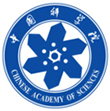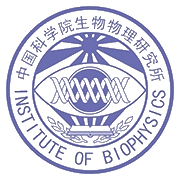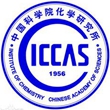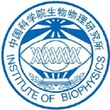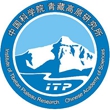Sessions 3:Life Sciences
Ian T. Baldwin

Character introduction
Positions
1996 - present Founding Director, Max Planck Institute for Chemical Ecology, Jena, Germany
1999 - present Adjunct Professor, Friedrich Schiller University, Jena, Germany
2000 - present Adjunct Professor, Brigham Young University, Provo, UT, USA
2011 - present Senior editor of eLife, Cambridge, UK
2012 - present Member of the German Centre for Integrative Biodiversity Research (iDiv), Halle, Leipzig, Germany
2005 - 2009 Affiliated Professor, Royal Veterinary and Agricultural University of Denmark
2005 - 2009 Adjunct Professor, Department of Ecology and Evolutionary Biology, Cornell
University, Ithaca, NY, USA
2003 - 2009 Adjunct Scientist, Boyce Thompson Institute for Plant Research, Ithaca, NY, USA
2002 - 2007 Founder and Director, International Max Planck Research School, Jena,
Germany
2002 - 2005 Managing Director, Max Planck Institute for Chemical Ecology, Jena, Germany
2002 - 2008 Co-Founder and Director, Virtual Institute for Biotic Interactions, Jena, Germany
1996 - 1998 Professor, Department of Biology, SUNY Buffalo, NY, USA
1994 - 1996 Associate Professor, Department of Biology, SUNY Buffalo, NY, USA
1989 - 1994 Assistant Professor, Department of Biology, SUNY Buffalo, NY, USA
Scientific awards
2018 ISI's 2018, 2017, 2016, 2015 World’s Most Influential Scientific Minds, Thomson
Reuters
2016 Elected fellow, American Association for the Advancement of Science (AAAS)
2014 Elected Member of the European Molecular Biology Organization (EMBO)
2014 Jean-Marie Delwart Award for Chemical Ecology
2013 Elected Member of the National Academy of Sciences (USA)
2013 Gewähltes Mitglied der Nationalen Akademie der Wissenschaften Leopoldina
2012 – 2017 European Research Council (ERC) Senior Researcher Award
2009 Tansley Lecture at the British Ecological Society Annual Meeting 2009
2001 Member of the Berlin-Brandenburg Academy of Sciences and Humanities
1998 International Society for Chemical Ecology, Silverstein-Simeone Award
1991 - 1996 NSF Presidential Young Investigator Award
1985 - 1988 A.D. White Graduate Fellowship, Cornell University
1985 - 1988 National Science Foundation, Predoctoral Fellowship Award
1980 Florence Fletcher Botany Prize, Dartmouth College
1996 - present Founding Director, Max Planck Institute for Chemical Ecology, Jena, Germany
1999 - present Adjunct Professor, Friedrich Schiller University, Jena, Germany
2000 - present Adjunct Professor, Brigham Young University, Provo, UT, USA
2011 - present Senior editor of eLife, Cambridge, UK
2012 - present Member of the German Centre for Integrative Biodiversity Research (iDiv), Halle, Leipzig, Germany
2005 - 2009 Affiliated Professor, Royal Veterinary and Agricultural University of Denmark
2005 - 2009 Adjunct Professor, Department of Ecology and Evolutionary Biology, Cornell
University, Ithaca, NY, USA
2003 - 2009 Adjunct Scientist, Boyce Thompson Institute for Plant Research, Ithaca, NY, USA
2002 - 2007 Founder and Director, International Max Planck Research School, Jena,
Germany
2002 - 2005 Managing Director, Max Planck Institute for Chemical Ecology, Jena, Germany
2002 - 2008 Co-Founder and Director, Virtual Institute for Biotic Interactions, Jena, Germany
1996 - 1998 Professor, Department of Biology, SUNY Buffalo, NY, USA
1994 - 1996 Associate Professor, Department of Biology, SUNY Buffalo, NY, USA
1989 - 1994 Assistant Professor, Department of Biology, SUNY Buffalo, NY, USA
Scientific awards
2018 ISI's 2018, 2017, 2016, 2015 World’s Most Influential Scientific Minds, Thomson
Reuters
2016 Elected fellow, American Association for the Advancement of Science (AAAS)
2014 Elected Member of the European Molecular Biology Organization (EMBO)
2014 Jean-Marie Delwart Award for Chemical Ecology
2013 Elected Member of the National Academy of Sciences (USA)
2013 Gewähltes Mitglied der Nationalen Akademie der Wissenschaften Leopoldina
2012 – 2017 European Research Council (ERC) Senior Researcher Award
2009 Tansley Lecture at the British Ecological Society Annual Meeting 2009
2001 Member of the Berlin-Brandenburg Academy of Sciences and Humanities
1998 International Society for Chemical Ecology, Silverstein-Simeone Award
1991 - 1996 NSF Presidential Young Investigator Award
1985 - 1988 A.D. White Graduate Fellowship, Cornell University
1985 - 1988 National Science Foundation, Predoctoral Fellowship Award
1980 Florence Fletcher Botany Prize, Dartmouth College
Topic: Why Nature Remains the Best Laboratory for the Study of Gene Function
Abstract Ecological interactions are the central agents of natural selection that sculpt genomes, but they are complex and frequently involve many interacting players influencing each other’s phenotypes. This complexity is very difficult to recapitulate in the laboratory and has thwarted the use of forward genetics to understand dependent traits, because only traits that can be readily phenotyped in a high-through-put (HTP) manner, can meet the sample-size requirements of this most unbiased of genetic analyses. Thanks to the long-term patient funding of the Max Planck Society, we have developed a fire-chasing native tobacco plant, Nicotiana attenuata, which grows in the Great Basin Desert, into a model for the study of plant-ecological interactions, particularly those biotic interactions that dominate the primordial agricultural niche. By training students in the lost art of natural history discovery, we have used the plant’s natural history interactions to phenotype transformed and recombinant inbred lines (RILs) of this plant, at two nature preserves in the plant’s native habitats, to understand the function of genes required for survival in nature. For the past two decades, the research program has used a reverse genetics approach following an ‘ask the plant’ paradigm to select genes for silencing experiments and field work. This talk will describe how the Department is preparing to use unbiased forward genetics wedded with unbiased metabolomics and unbiased natural history-based field biology using sentinel insects, microbes and metabolites to understand the genetics behind the management of complex ecological interactions.
Previous Feng Shao
Next Xiao-Fan Wang
